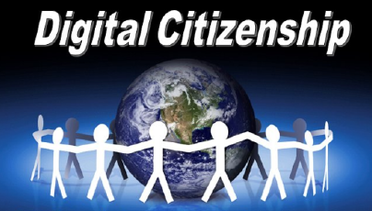WIth your partner, put a summary of your reports (combined) and your hyperlinked resources on your Technology blog. Each partner must embed the document in their blog.
Research one of the nine elements for digital citizenship and provide a definition as well as background material. Find a group in the community, such as another class, a group of parents or teachers, who would benefit from learning about this topic and explore methods for ‘teaching’ this group, Discuss any existing cross-curricular links to support your particular topic. Discuss and evaluate resources and teaching methods. Design tests and evaluations for your final lesson. These could include formative as well as summative and be designed for the audience as well as the teacher to complete.
Create an individual report based on this investigation. Don't forget to cite all resources in MLA style. Embed this report using Scrib, into your Technology Blog, and past the link to your blog post here. In this lesson, you will learn to recognize the elements of digital citizenship:
Who is a digital citizen? You! Basically, a digital citizen is anyone who uses digital tools such as computers, cell phones, or the internet in their work, school or for recreation. Just like citizens of a city have to adopt rules and standards of behavior in order to live together, those of us in the digital world should do the same. There are general guidelines we can all follow in order to stay safe, and work well in the digital world. These guidelines are outlined in the elements of digital citizenship. What are the 9 elements of digital citizenship? The elements of Digital Citizenship, defined by Mike Ribble and Gerald Bailey are as follows: Digital Access
Source: http://www.pensacolachs.org/webpages/capplications/index.cfm?subpage=428866 Lets get started with some Ted Talk Video'sCyber-Influence & Power
1) Kevin Alloca: Why videos go viral http://ed.ted.com/on/VN93fG9c 2) Clay Shirky: How Social Media can Make History http://ed.ted.com/on/La77Ugad Task: You will poste a reflection in your learning log titled: "Cyber - Influence & Power" and share 1) A resume of each video 2) How you felt about each video 3) Questions that came to mind while watching each video 4) Any concerns that you have after watching the video's |

 RSS Feed
RSS Feed